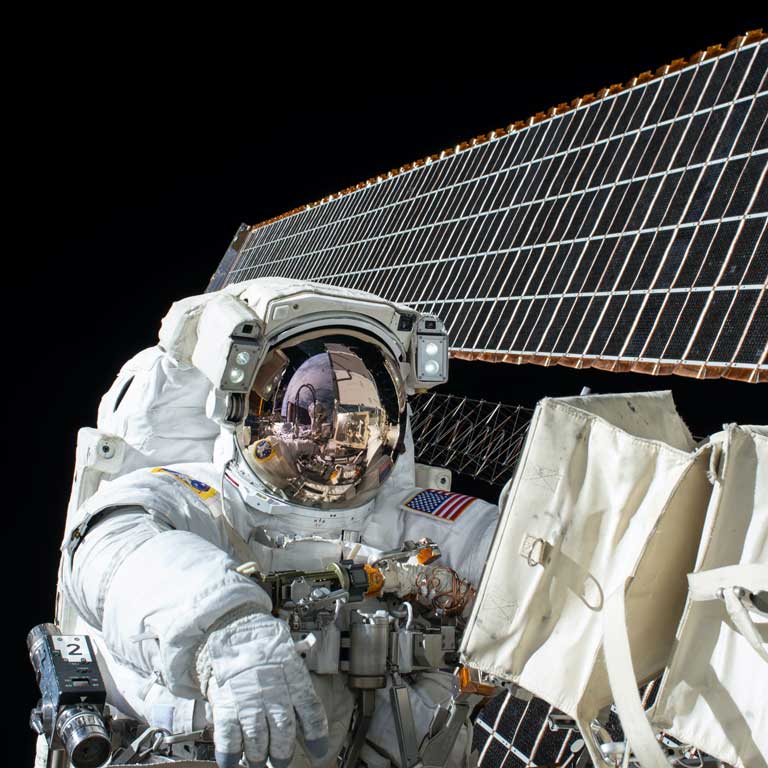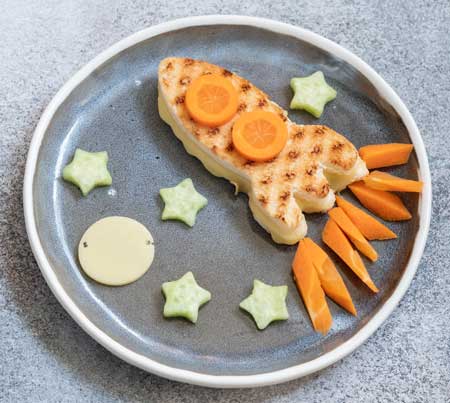
Take care of yourself like an astronaut - what nutrients are recommended for a space trip?
Since the recent news of the landing of the rover Perseverance on Mars, it has been shown that travelling to the red planet or other planets is no longer science fiction, but rather that the future of space travel is getting closer and closer.
Space agencies, including NASA, have learned over the years the importance of monitoring the physical and mental well-being of astronauts, and nutrition is one of the key elements in space exploration.
What food recommendations are made to astronauts so that they can cope with such a demanding journey and stay for many days in space?
Food ingredients for physical and mental performance in space
Space travellers have certain physical and mental demands and varying environmental conditions that must be balanced by a number of measures, including food, in order to keep their cardiovascular and nervous systems working properly.
The lack of gravity (or microgravity conditions inside spacecraft) may affect the functioning of cognitive functions, circadian rhythms, metabolic, bone and muscle function, among others.
What are the main nutrients recommended for a space journey?

Space nutrition has made great progress since the first manned space missions to achieve a balanced diet, improved packaging to improve the space food footprint, as well as the use of thermostabilised foods or partially dried foods such as dried fruit.
Life inside a space shuttle is very demanding, so the diet of astronauts in space must include carbohydrates, lipids and proteins that provide the energetic substrate necessary for physical and mental performance.
In addition, a good balance of minerals and vitamins provides an essential contribution, especially to muscle function.
NASA recommends the following nutrients and values for a space flight:
- Energy intake between 2000 and 3000 calories.
- Protein in an amount no greater than 85 g/day.
- Calcium 800-1200 mg/day.
- Vitamin D at 10 μg/day.
- Iron intake of 10 mg/day.
- Sodium (1500-3500 mg/d) and potassium (3500 mg/day).
Usefulness of ginseng during space travel
As we mentioned, in space travelers undergo a unique combination of environmental factors - microgravity, circadian desynchrony, long stay in space - as well as a high mental and physical workload. Both NASA and the Chinese Space Agency (CNSA)1 have developed a number of recommendations to improve physical and mental well-being, which may include procedures, training, exercise, nutrition, among others.
The functions to be maintained during the space journey include cognitive performance, especially those in the areas of learning, decision-making and memory, in order to ensure the success of the mission.
Ginseng is considered among the botanical food ingredients as an intervention option for astronauts to keep their mental performance, in terms of concentration, coordination and alertness.
Studies with Ginseng being developed provide support for its positive effects on emotional and cognitive performance in simulated microgravity conditions.1,3,5
Ginseng has been used in herbal tonics for over 2,000 years in the Far East. It contains a wide range of active ingredients, with saponins, also known as ginsenosides, being the most important bioactive components. Ginseng also enhances vitality by combating tiredness and fatigue, and helps to maintain normal glucose and insulin metabolism (EFSA ON HOLD).
Benefits of melatonin for sleep during an orbit
Sleep rest is very important and due to different factors, space travelers may have some changes in the circadian rhythm of sleep.
NASA has made an exhaustive record of the quality and quantity of sleep during space travel, as well as of the measures to promote a restful sleep, where melatonin has confirmed in different clinical studies its contribution to reduce the time of sleep conciliation.





